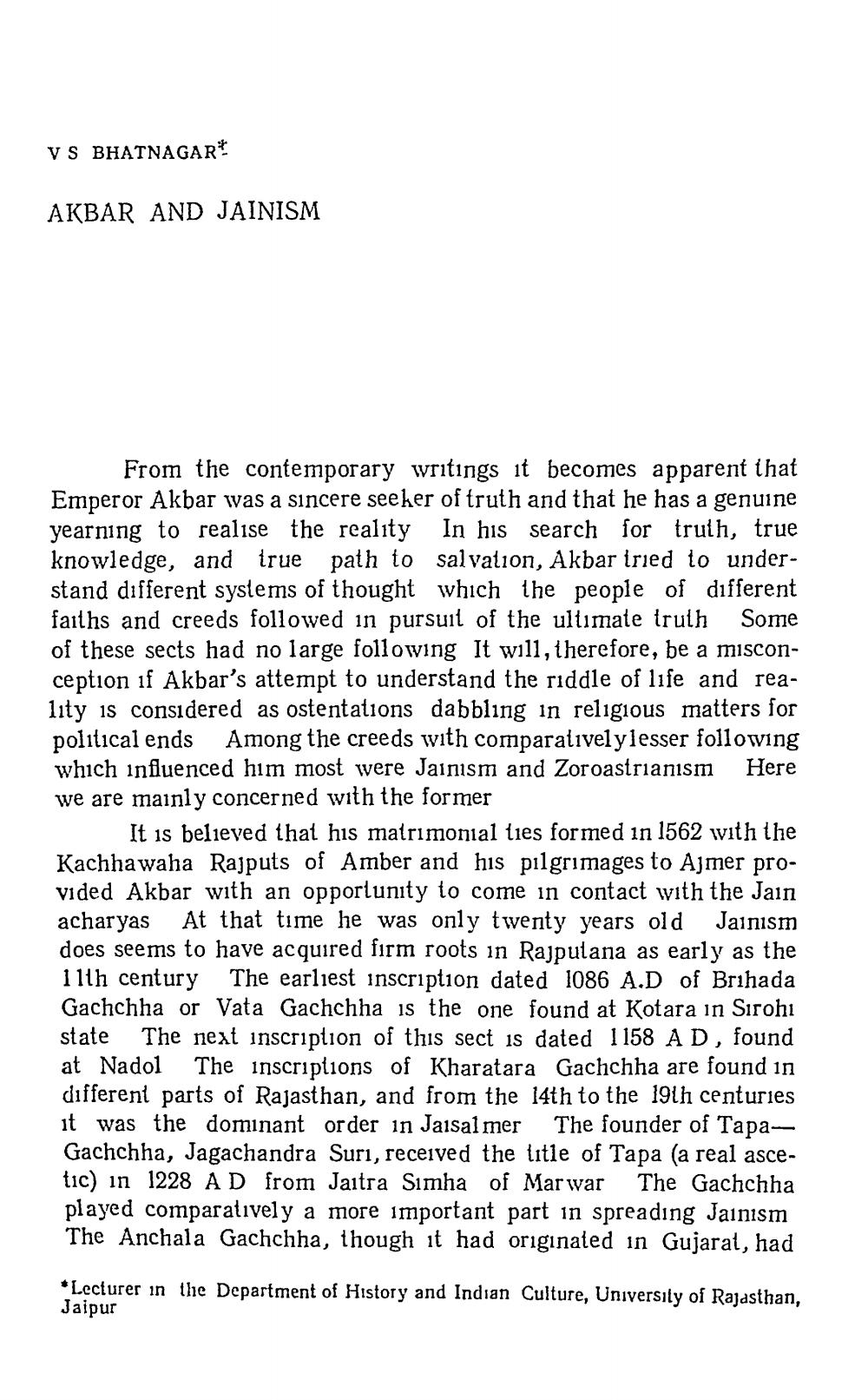________________
VS BHATNAGARE
AKBAR AND JAINISM
From the contemporary writings it becomes apparent that Emperor Akbar was a sincere seeker of truth and that he has a genuine yearning to realise the reality In his search for truth, true knowledge, and true path to salvation, Akbar tried to understand different systems of thought which the people of different faiths and creeds followed in pursuit of the ultimate truth Some of these sects had no large following It will, therefore, be a misconception if Akbar's attempt to understand the riddle of life and reality is considered as ostentations dabbling in religious matters for political ends Among the creeds with comparativelylesser following which influenced him most were Jainism and Zoroastrianism Here we are mainly concerned with the former
It is believed that his matrimonial ties formed in 1562 with the Kachha waha Rajputs of Amber and his pilgrimages to Ajmer provided Akbar with an opportunity to come in contact with the Jain acharyas At that time he was only twenty years old Jainism does seems to have acquired firm roots in Rajputana as early as the 11th century The earliest inscription dated 1086 A.D of Brihada Gachchha or Vata Gachchha is the one found at Kotara in Sirohi state The next inscription of this sect is dated 1158 AD, found at Nadol The inscriptions of Kharatara Gachchha are found in different parts of Rajasthan, and from the 14th to the 19th centuries it was the dominant order in Jaisalmer The founder of TapaGachchha, Jagachandra Suri, received the title of Tapa (a real ascetic) in 1228 AD from Jaitra Simha of Marwar The Gachchha played comparatively a more important part in spreading Jainism The Anchala Gachchha, though it had originated in Gujarat, had
*Lecturer in the Department of History and Indian Culture, University of Rajasthan, Jaipur




